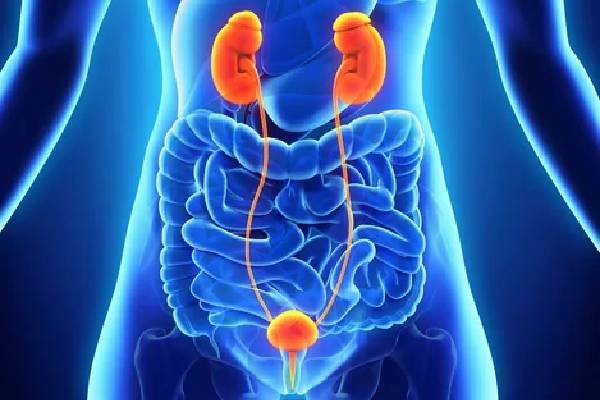Urinary issues can seriously compromise one’s quality of life, influencing everything including everyday activities, personal comfort and health. See a urinary problems specialist if you have ongoing difficulties like bladder pain, incontinence, or frequent urination. This page explores the roles of these experts, typical urinary problems, and the need of early diagnosis and treatment.
Who is a Urinary Problems Specialist?
A urinary problems specialist—often a urologist—is a medical professional who diagnoses and treats diseases related to the urinary tract and male reproductive organs. They specialize in managing conditions affecting:
- Kidneys
- Bladder
- Ureters
- Urethra
- Prostate Gland(in men)
Urologists play a crucial role in maintaining urinary health and managing complex conditions that require expert care.
Common Urinary Problems Addressed by Specialists
Urinary issues can manifest in various ways, from minor discomforts to severe health complications. Some of the most common problems treated by urinary specialists include:
- Urinary Tract Infections (UTIs)
- Characterized by frequent urination, a burning sensation during urination, and cloudy urine.
- UTIs are more common in women but can affect men and children as well.
- Incontinence
- The involuntary leakage of urine.
- Can range from minor leaks during coughing or sneezing to a complete loss of bladder control.
- Kidney Stones
- Hard deposits made of minerals and salts that form inside the kidneys.
- Symptoms include severe pain, blood in urine, and difficulty urinating.
- Benign Prostatic Hyperplasia (BPH)
- An enlarged prostate, common in older men.
- Can cause urinary retention, frequent urination at night, and a weak urine stream.
- Interstitial Cystitis (Bladder Pain Syndrome)
- Chronic condition causing bladder pressure, pain, and sometimes pelvic pain.
- Often misdiagnosed due to overlapping symptoms with other urinary disorders.
- Overactive Bladder (OAB)
- Sudden and uncontrollable urges to urinate.
- May lead to frequent trips to the bathroom and disrupt daily life.
Importance of Early Diagnosis and Treatment
Early detection of urinary problems is essential to prevent complications such as kidney damage, chronic infections, or urinary retention. Consulting a specialist at the first sign of an issue can lead to more effective treatment options and improved outcomes. Ignoring symptoms can result in more invasive procedures later on.
Benefits of Consulting a Specialist Early:
- Accurate Diagnosis: Specialists use advanced techniques like cystoscopy, urodynamic tests, and ultrasound for precise diagnosis.
- Personalized Treatment Plans: Based on the severity and nature of the condition.
- Preventive Care: Guidance on lifestyle changes and habits to maintain urinary health.
What to Expect During Your Visit
Visitar a un especialista en problemas urinarios can be daunting, especially if it’s your first time. Here’s what you can expect during your initial consultation:
- Medical History Review:
- The specialist will ask detailed questions about your symptoms, medical history, and lifestyle.
- Physical Examination:
- A thorough examination to identify signs of physical abnormalities.
- Diagnostic Tests:
- May include urine tests, blood tests, and imaging studies.
- Treatment Plan:
- Based on findings, the urologist will recommend a treatment plan, which may include medications, lifestyle changes, or surgical intervention.
Treatment Options for Urinary Problems
Treatment for urinary issues varies depending on the underlying cause, severity, and patient health. Some common treatment approaches include:
- Medications
- Antibiotics for infections.
- Alpha-blockers for prostate-related issues.
- Anticholinergics to reduce bladder spasms.
- Lifestyle Modifications
- Diet changes to avoid bladder irritants like caffeine and alcohol.
- Pelvic floor exercises (Kegels) to strengthen bladder control.
- Minimally Invasive Procedures
- Cystoscopy to remove small kidney stones or treat bladder problems.
- Urethral dilation for urinary strictures.
- Surgical Interventions
- Prostate surgery for severe BPH.
- Bladder augmentation for OAB.
Tips for Maintaining Urinary Health
Maintaining urinary health is a lifelong commitment. Here are some effective tips to reduce your risk of developing urinary problems:
- Stay Hydrated: Drink plenty of water daily to flush out toxins and prevent kidney stones.
- Practice Good Hygiene: Maintain personal hygiene to prevent UTIs.
- Avoid Bladder Irritants: Limit intake of caffeine, spicy foods, and alcohol.
- Regular Check-ups: Annual visits to a specialist for men over 50 and women with recurrent issues.
- Pelvic Floor Exercises: Strengthen pelvic muscles to prevent incontinence.
When to See a Specialist
Seek help from a urinary problems specialist if you experience any of the following:
- Blood in the urine
- Persistent pain in the lower abdomen or pelvic area
- Unexplained changes in urination patterns
- Difficulty urinating or frequent urination
- Involuntary urine leakage
Conclusion
Although urinary difficulties can be upsetting, a qualified urinary problems specialist will help you to find relief and take charge of your health. Effective management of urological problems depends on early intervention, correct diagnosis, and a complete treatment strategy. If you or someone you know suffer with urinary problems, don’t hesitate to get expert advice for a better, more pleasant life.



